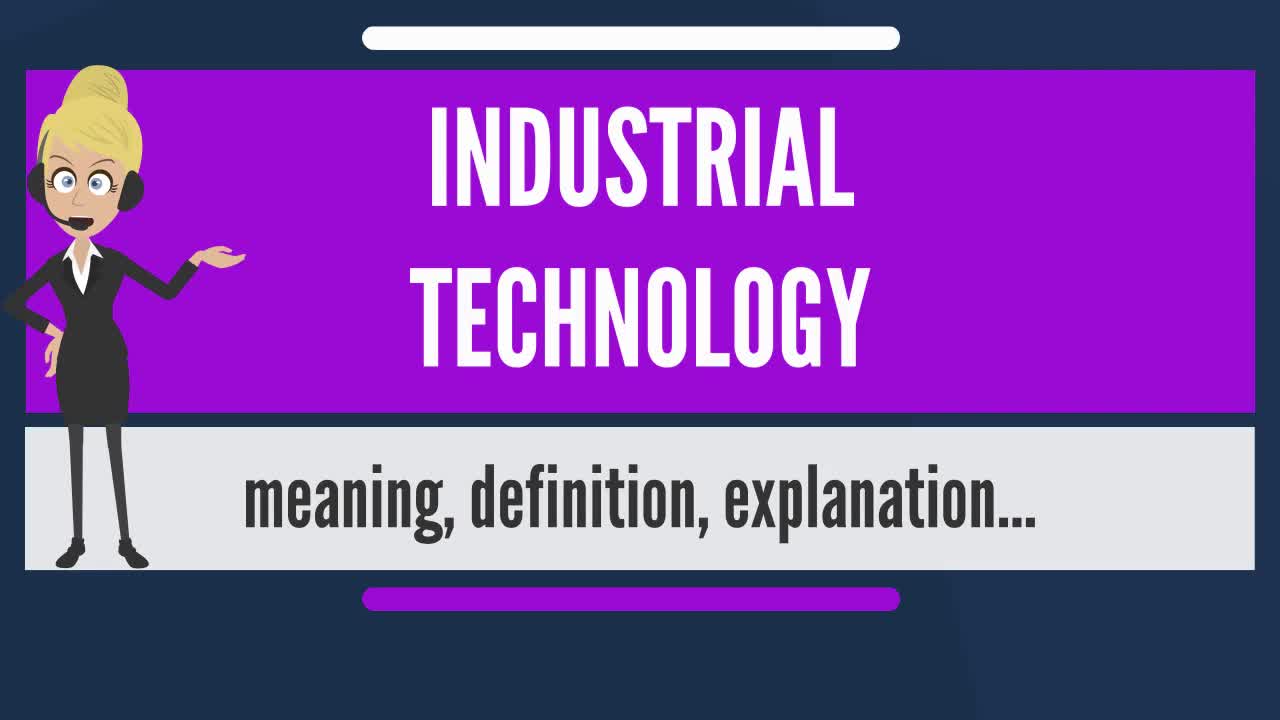Premium Only Content

What is INDUSTRIAL TECHNOLOGY? What does INDUSTRIAL TECHNOLOGY mean? INDUSTRIAL TECHNOLOGY meaning
What is INDUSTRIAL TECHNOLOGY? What does INDUSTRIAL TECHNOLOGY mean? INDUSTRIAL TECHNOLOGY meaning - INDUSTRIAL TECHNOLOGY definition - INDUSTRIAL TECHNOLOGY explanation.
Industrial technology is the use of engineering and manufacturing technology to make production faster, simpler and more efficient.The industrial technology field employs creative and technically proficient individuals who can help a company achieve efficient and profitable productivity.
Industrial Technology programs typically include instruction in optimization theory, human factors, organizational behavior, industrial processes, industrial planning procedures, computer applications, and report and presentation preparation.
Planning and designing manufacturing processes and equipment is a main aspect of being an industrial technologist. An Industrial Technologist is often responsible for implementing certain designs and processes. Industrial Technology involves the management, operation, and maintenance of complex operation systems.
The USA based Association of Technology, Management, and Applied Engineering (ATMAE), accredits selected collegiate programs in Industrial Technology in the USA. An instructor or graduate of an Industrial Technology program may choose to become a Certified Technology Manager (CTM) by sitting for a rigorous exam administered by ATMAE covering Production Planning & Control, Safety, Quality, and Management/Supervision.
ATMAE program accreditation is recognized by the Council for Higher Education Accreditation (CHEA) for accrediting Industrial Technology programs. CHEA recognizes ATMAE in the U.S. for accrediting associate, baccalaureate, and master's degree programs in technology, applied technology, engineering technology, and technology-related disciplines delivered by national or regional accredited institutions in the United States.(2011)
"A career in industrial technology typically entails formal education from an accredited college or university. Opportunities are available to professionals with all levels of education. Those who hold associate degrees typically qualify for entry-level technician and technologist positions, such as in the maintenance and operation of machinery. Bachelor's degree-holders could fill management and engineering positions, such as plant manager, production supervisor and quality systems engineering technologist. A graduate degree in industrial technology could qualify individuals for jobs in research, teaching and upper-level management".
Industrial Technology includes wide-ranging subject matter and could be viewed as an amalgamation of industrial engineering and business topics with a focus on practicality and management of technical systems with less focus on actual engineering of those systems.
Typical curriculum at a four-year university might include courses on manufacturing process, technology and impact on society, mechanical and electronic systems, quality assurance and control, materials science, packaging, production and operations management, and manufacturing facility planning and design. In addition, the Industrial Technologist may have exposure to more vocational-style education in the form of courses on CNC manufacturing, welding, and other tools-of-the-trade in manufacturing.
-
 3:12:08
3:12:08
MyronGainesX
9 hours ago $28.37 earnedDan Bongino Named As Deputy Director Of FBI And CPAC Recap
85.6K27 -
 3:12:31
3:12:31
vivafrei
9 hours agoBarnes Live from Seattle - Defending Benshoof in a Case that is CRAY CRAY!
115K45 -
 2:12:12
2:12:12
Robert Gouveia
9 hours agoLiberals EXPLODE over Elon's Email; Lawsuits FLY; Sanctions?? Congrats Dan!
95.1K34 -
 1:33:36
1:33:36
Redacted News
9 hours agoBREAKING! PUTIN LAUNCHES MASSIVE OFFENSIVE IN UKRAINE AS EUROPEAN LEADERS PUSH FOR MORE WAR
175K240 -
 44:39
44:39
Kimberly Guilfoyle
10 hours agoBetter Days Ahead for the FBI, Live with Asm Bill Essayli & John Koufos | Ep.199
110K24 -
 1:40:29
1:40:29
In The Litter Box w/ Jewels & Catturd
1 day agoWhat Did You Do Last Week? | In the Litter Box w/ Jewels & Catturd – Ep. 748 – 2/24/2025
149K40 -
 23:34
23:34
Stephen Gardner
9 hours ago🔥CNN PANICS over $5000 DOGE Dividend | Trump Orders bigger Audits
93.6K161 -
 1:53:54
1:53:54
The White House
12 hours agoPresident Trump Holds a Press Conference with President Emmanuel Macron of France
102K89 -
 1:48:31
1:48:31
The Officer Tatum
12 hours agoLIVE MSNBC DROPS HAMMER On Joy Reid as STAFFERS PANIC! + More Ep 67
133K87 -
 59:36
59:36
Chad Prather
11 hours agoTRUMP TAPS DAN BONGINO TO HELP LEAD FBI - IT’S OVER FOR THE DEEP STATE!
98.7K72